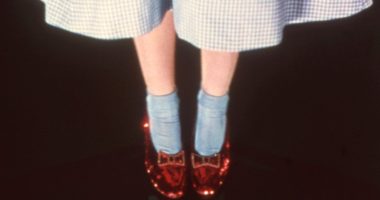
Five years after he made his directorial debut at Sundance, actor and filmmaker Chiwetel Ejiofor returned to the fest Monday with his sophomore feature, Rob Peace. The film is based on Jeff Hobbs’ 2014 book The Short and Tragic Life of Robert Peace and tells the true story of a Peace, who grew up in Orange, New Jersey and went on to attend Yale majoring in biochemistry.
In the film, Peace sells marijuana at Yale to earn money that he uses to help overturn his father’s murder conviction, and expresses his desires to return the neighborhood where he grew up.
Speaking ahead of the fest, Ejiofor points out that “within the African American experience, the connection to home, the connection to place, the connection to community is somehow less valid.” He continues: “Anybody who actually tries to reinstitute themselves within that community is somehow failing, on some level.”
THR‘s Sundance review adds to this sentiment, reading,: “Rob didn’t see anything wrong with his community. He had no desire to leave, and part of the tragedy of Rob Peace is that few people seemed to wonder why.”
The film holds parallels — especially a commitment to community — with Ejiofor’s first feature, The Boy Who Harnessed the Wind. That film tells the true story of a young man in Wimbe, Malawi who refuses to give up on his family farm, devastated by drought and famine, instead building a windmill to restart village’s water pump.
Ejiofor talked to THR about the similarities between his directorial works and the importance of filming on location in New Jersey in New Jersey.
How did you find the book?
I read the book not long after it came out. Robert spoke to me in terms of all of the different intersections that he was dealing with. He’s three years younger than me, and a lot of his experiences, thoughts and feelings, I really related. I felt that I really understood. He felt like a character of my time. It was sort of coincidental that, a few a few years later, Rebecca Hart and Antoine Fuqua approached me having seen my first film, The Boy Who Harnessed the Wind, about getting involved in the film version of this.
What did you want potential audiences to see in Rob’s story?
He grew up in this period of time where we have this idea of social mobility, and he was at the absolute intersection of education and housing and the criminal justice system. There is this idea of how people move through these spaces and are still true to their own community. Here was this very brilliant young man who is trying to juggle all of these thoughts. Rob was maintaining a full, proper, honest connection to who he was. [He was] able to navigate these complex social spaces that are set up, in some way, to his detriment. He was, to some degree, unable to do this, as well. It really speaks to larger circumstances of race, housing, education, and criminal justice.
There’s still this associated blame placed on people; there’s language and ideology that suggests that an idea of not being able to find your way out. As if, within the African American experience, the connection to home, the connection to place, the connection to community is somehow less valid. What Rob is experiencing and the world that he works in, seems to me, entirely legitimate. And somehow the way that those [communities] are discussed, especially if the community is impoverished, it’s as if escaping that said community is the ultimate goal. And anybody who actually tries to reinstitute themselves within that community is somehow failing, on some level. This is not really applied to any other social or economic or racial group. It is quite specific in the African American communities.
Did you film on location in New Jersey?
It was really important to shoot where all of the things happened, as much as possible. So much of it is centered in that experience of East Orange. We shot in houses in East Orange, and you’re relying hugely on the goodwill of the community, especially when it’s running late, and there’s generators everywhere with blaring lights. People really supported the project, and a lot of people were very aware of Rob and his journey and what happened to him.
How did you find your lead?
It was a difficult process until it becomes very, very simple. For me, it was all about interpretation— how people see how people see Rob. Whether they perceive him as somebody who is trying to fit into these different spaces, or whether they see him as a the same stable, solid, individual who is believably in all of these spaces. That proves to be a sticking point. The perception is that there is a, for want of a better expression, a code switching that people lean into. There is the idea that he was playing up these different parts of his personality, or these different parts of his circumstances, which I didn’t believe was true. He felt very at ease in very different spaces. He felt like he was able to move through different places as one person. Jay [Will] came out of the COVID years at Juilliard, so he didn’t really have a showcase. There were some clips of him from school that you could access online. But as soon as I started to see him interact with this material, I was very aware that he was somebody who was capturing all sides of this character without forcing anything. I just believed him in all of these spaces.
This is you second feature as a director. What did you learn from this production that you will be taking with you into your future directing work?
What really struck me was, when watching the film from the first assembly, I started to see the similarities in both films. There is the ton and pacing of scenes, and similar interpersonal relationships. You become aware, as a writer-director, that these are part of how you see the world and therefore how you relay it, artistically. And you can’t really know that until you start seeing more of your own work. It’s an enjoyable feeling to start to see [the connections] and maybe then, when I’m directing in the future, I will lean more into that.
Read More: World News | Entertainment News | Celeb News
Hollywood







